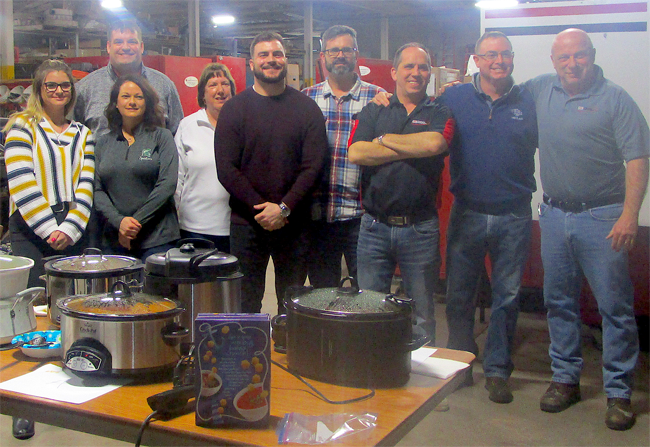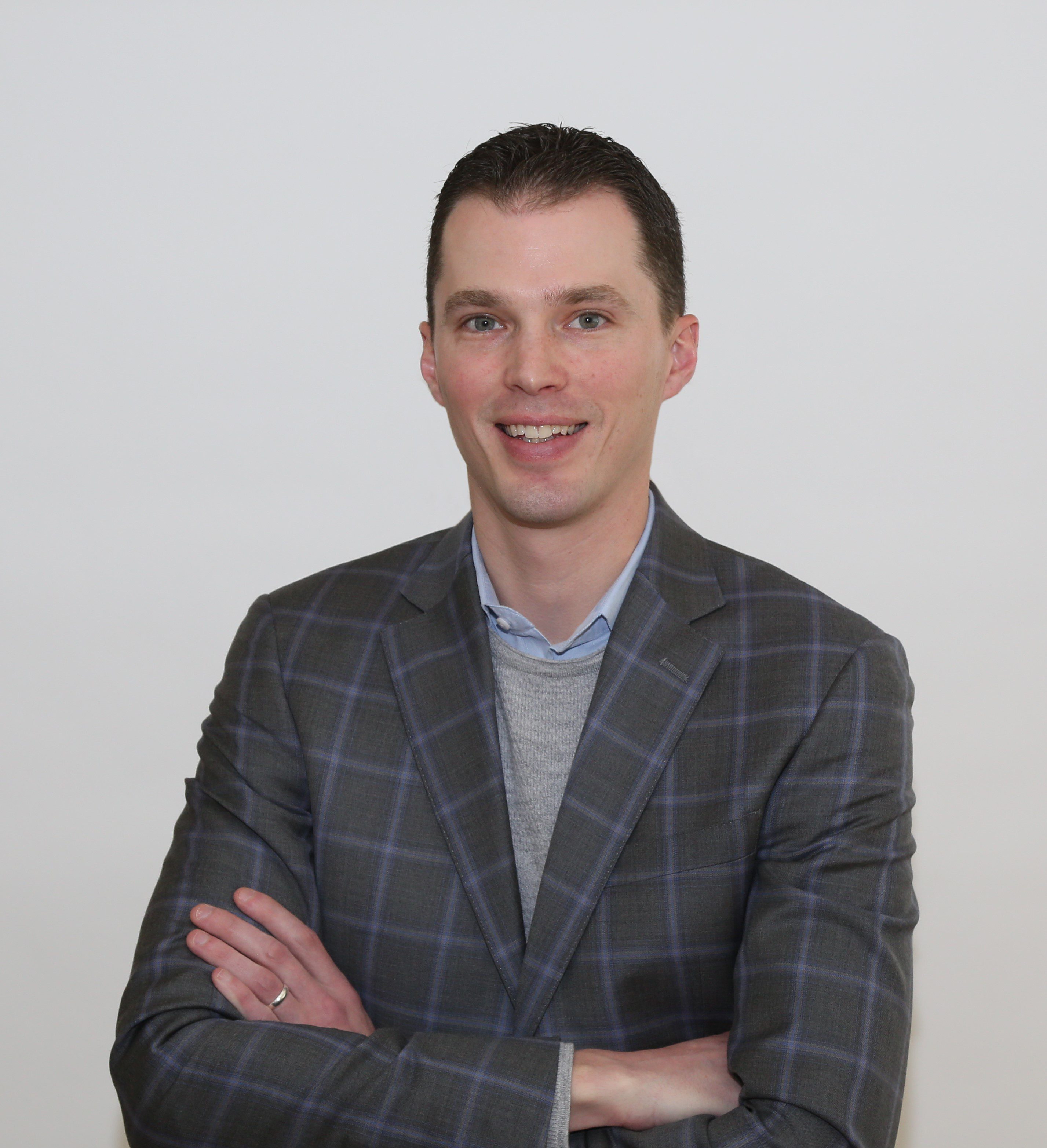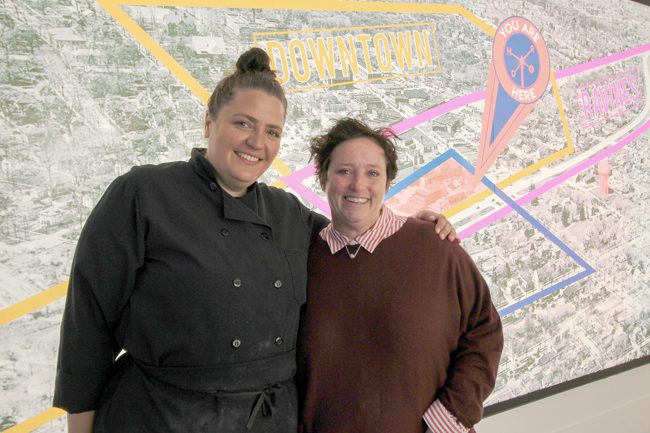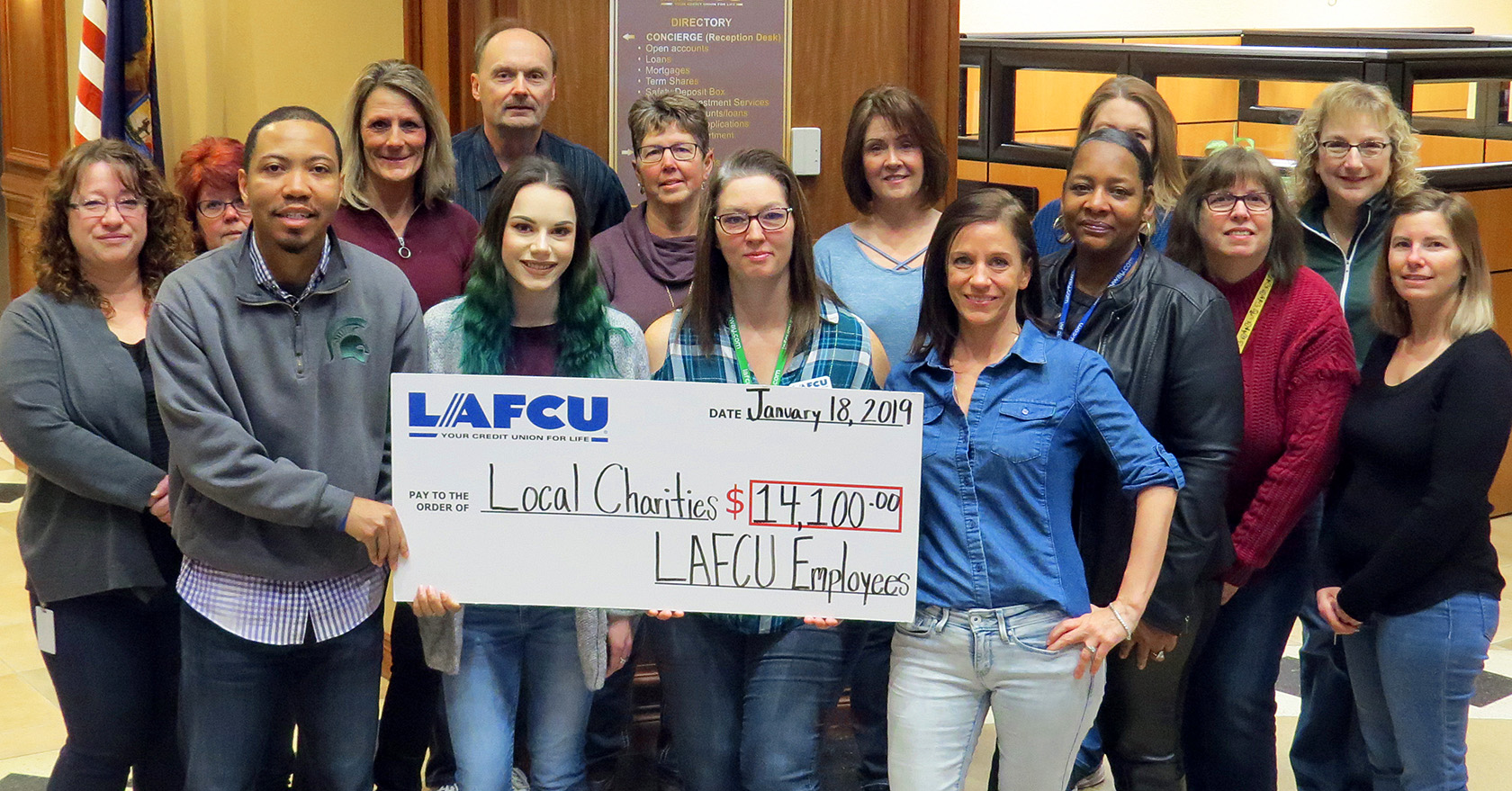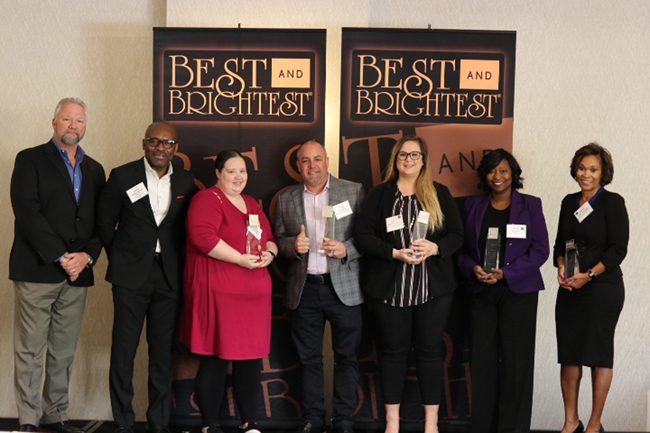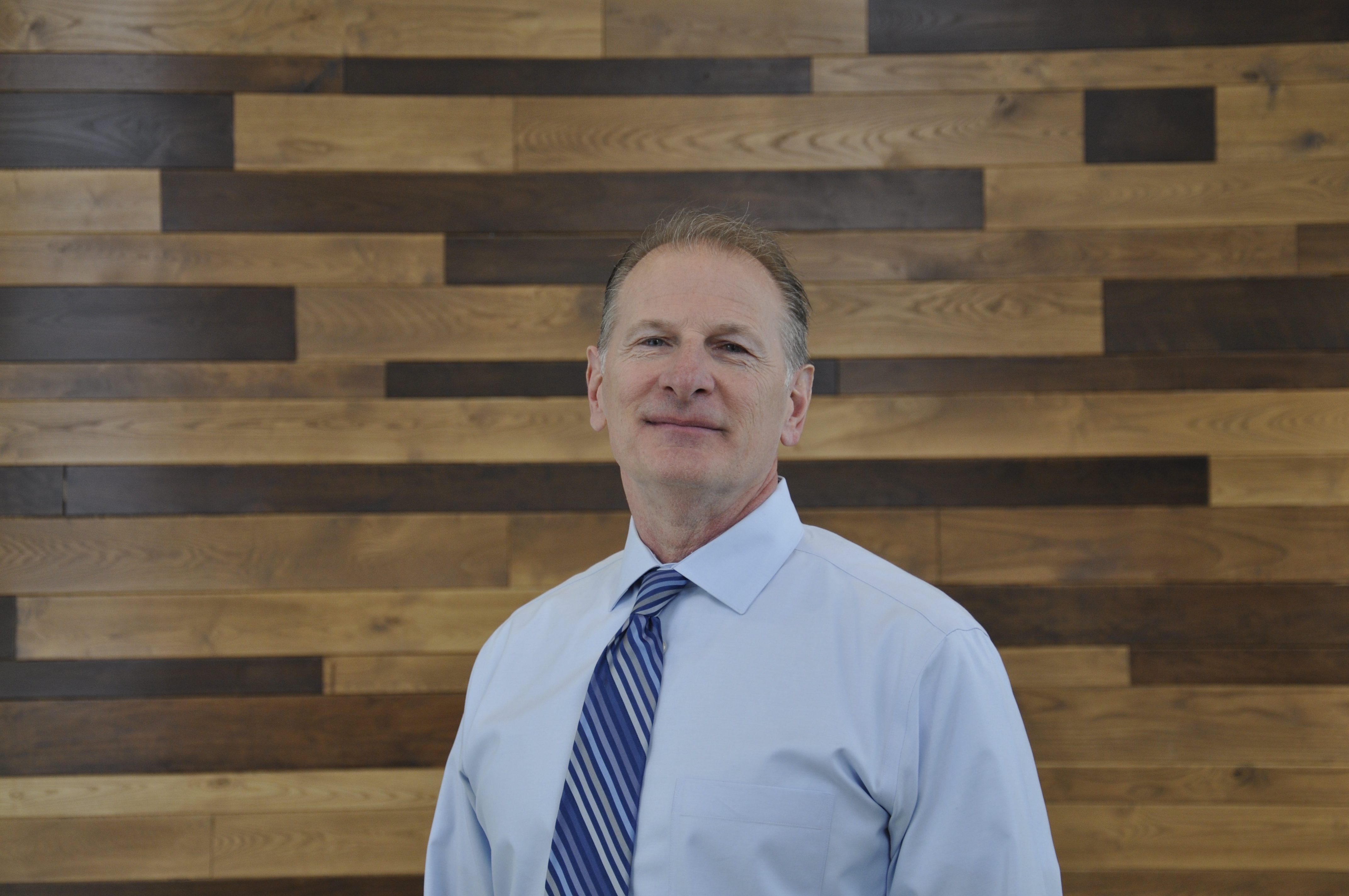CEO Spotlight with Kent Riddle of Mary Free Bed Rehabilitation Hospital
Chili cook-off creates opportunity for this staff to create camaraderie
Most days, the staff at Progressive Mechanical in Ferndale are quoting bids in the office or out in the field, putting together mechanical processing and fire-protection systems for companies of all shapes and sizes.
Recently, however, they came together at their headquarters for a serious cause: They wanted to know which employee could produce the best chili.

The annual Progressive Mechanical chili cook-off took place “in a spirit of four-alarm fellowship,” according to people on the scene. This family owned business may be good-natured in general, but they definitely had a strong competition going when it comes to chili.
The chili cook-off started with an idea from Vice President Charly Hosler. He wanted to create a way to adapt the competitive spirit of the company’s employees to build community and camaraderie among the many kinds of employees who work there.
Each year, it gets bigger and the chili dishes get more ambitious, according to company officials. Last year, eight contestants from the company’s Ferndale and Mount Clemens offices vied for the coveted trophy that sits on Charly’s desk.

In the end, the event went off without any airing of grievances and everyone had a good time. Corey Lindros took home the trophy and everyone had a good amount of fun, conversation and camaraderie at Progressive Mechanical’s warehouse.
Progressive Mechanical Inc. is a full-service mechanical, plumbing, process piping and fire protection contractor specializing in the design, fabrication and installation of mechanical processing and fire protection systems for industrial, commercial, institutional and municipal markets.
Kevin Jahnke joins Income Property Organization
Income Property Organization (IPO), provider of customized brokerage services, has a new team member—Kevin Jahnke—who has been retained to assist with IPO’s expansion into the Indiana multifamily market.

CEO Spotlight with Mr. Mark Meijer of Life EMS
CEO Spotlight: Cornerstone University President Joe Stowell
CEO Spotlight with Meredith Bronk of OST
CEO Spotlight Aaron Gach, Boy Scouts of America Gerald R Ford Council
CEO Spotlight: Dr. Peter Hahn, CEO of Metro Health
CEO Spotlight: Birgit Klohs of The Right Place
CEO Spotlight: Michael Waldschlager & Kyle Wentworth from Fusion IT
CEO Spotlight: Mary Tuuk From The Grand Rapids Symphony
Feeling hungry? Serve up a brunch perfect for St. Patrick’s Day

As St. Patrick’s Day approaches, you might be feeling a bit like celebrating. Have you ever thought about trying a full Irish breakfast?
This brunch-friendly recipe comes from a restaurant in Birmingham: Hazel, Ravines and Downtown. The new hot spot got its name from the neighborhoods where the restaurant is located. Its owners developed three menus – one named for each of those neighborhoods – and they represent the familiar, the well-traveled and an ever-changing trend-setting menu.

Executive Chef and Co-Owner Emmele Herrold created a warm-you-up comfort food dish she calls the Full Irish Breakfast and it’s become a fast favorite.The Full Irish Breakfast is available at all times. No Irish Whiskey or beer is required, but yes, the bar serves that, too.
The Full Irish Breakfast consists of the following: Baked beans, Kielbasa (or favorite sausage), ham, eggs, potato, grilled tomato and toast. It’s easy to make at home.
The Full Irish Breakfast
Recipe by Executive Chef Emmele Herrold, who co-owns Hazel, Ravines and Downtown along with Beth Hussey

Potatoes:
2 lbs. fingerling potatoes
Toss potatoes in olive oil, salt and pepper. Bake until tender. Let cool. Mash potatoes with the palm of your hand, just until flat. Heat olive oil in a skillet. Add potatoes to hot oil, season with salt and pepper if needed. Cook until golden brown.
Prepare the rest:
• Slice ham in 1/4 slices (1 per person)
• Slice tomatoes 1/2 thick (3 slices per person)
• Use about 2 inches of sausage per person
• 2 eggs per person (We suggest sunny side up)
• 1 piece of toast per person (choose your favorite toast)
Baked beans:
Cook 2 cups pinto beans in water until they are soft.
Stew together with:
• 1/4 lb. bacon
• 1 cup ketchup
• 1/4 cup brown sugar
• 2 tsp apple cider vinegar
• Add water to cover
Prepare ham, sausage and tomato by cooking them until golden brown and cooked through on a griddle or in a sauté pan.
Assemble one plate per person with:
• 2 eggs
• 2 inches Sausage
• 1 slice ham
• 3 slices tomato
• 1/2 cup beans
• 1/2 cup potato
• 1 slice toast
Serve hot.
LAFCU credit union employees go ‘casual,’ raise $14,100 for community
By simply dressing casually on Fridays and donating $2 each time to do so, LAFCU employees raised $14,100 for charity in 2018. “The program is popular because we sincerely want to support our community,” said Casual Dress Committee Chair Amanda Seger. “Dressing casually is just a fun, side benefit.”

Giving employees time to volunteer boosts teamwork, community engagement
Founders’ Day is like a holiday at Turner Construction Company where employees in
“It provides an opportunity for people to get involved and feel like they’re part of the bigger picture,” said
It’s a simple concept: Brown and other staffers research nonprofit organizations and community groups that want help. Then, on May 5, Turner Construction employees fan out and tackle jobs big and small. Sometimes, they might be painting a hallway. Sometimes, they are building a ramp outside of a senior citizen’s house.
But no matter what the project is, working together not only builds the community, it ends up building new friendships and communication between Turner Construction workers, Brown said.
“It’s a great way for us to connect with organization we work with in our personal lives or a way for us to connect with organizations near our jobs sites,” Brown said. “Sometimes, it’s an organization that someone tells us is doing great stuff and maybe we should help.”
For Brown, helping people in a variety of situations has been humbling, especially when Turner Construction has helped programs focused on people with disabilities or people who are struggling with the cycle of homelessness.
It also has been a way for Turner Construction to take what it does best – building dreams for people and businesses – and help others who are in need. For example, the Rebuilding Together program at the end of April typically kicked off Founders’ Day or Week activities. A community group helps Turner Construction find a family in need and asks them what projects need to be done around their home. Then, a swarm of Turner Construction employees make those projects happen.
“It could be something as simple as fixing a sink or landscaping. The bottom line is it is making people’s lives better,” Brown said.
These kinds of volunteer opportunities are helping Turner Construction find new hires and retain its current talented staff, Brown added. It is easier to find the time to volunteer when your employer supports it and makes time in the workday to do these good deeds, she noted.
“I keep up with human resources and the news, and you read about how m
Plus, it shows the company’s softer side – that the men and women who work for a construction company truly care about their fellow humans and communities.
“It’s a way for folks to do good and take ownership when you’re working for a company that gives back,” she added.
Every project that comes on or around Founders’ Day is special. One example was when a local hospital asked the local Turner Construction team to come by and organize its clothing pantry, a collection of donated clothes. Staff have also has passed out hygiene kits donated by the American Red Cross.
Another popular one was creating “Boo Bags,” or treat bags filled with candy, for the local YMCA. Some staffers went out at lunch that day and bought even more candy because everyone wanted to participate, Brown said. The simplest things really add up, she noted.
“That’s the part of my job that I love – identifying stuff for us to do” on Founders’ Day and other volunteer days, Brown said. “One of my favorites was when one of the largest homeless shelters asked us to paint the women’s restroom and main corridor. It’s the little things that mean the most – like a brighter bathroom and hallway. That’s humbling.”
No waste? No problem for this Grand Rapids company
Cascade Engineering takes its trash seriously – so seriously in fact that the Grand Rapids-based private company that focuses on large-scale plastic injection molding has spent zero dollars on landfill costs over the past six years.
Zero. Zilch. Nada. Cascade set what it calls an “audacious goal” of maintaining facilities that are zero waste-to-landfill. Most of its facilities have met this goal and many others are on their way, company officials said.
The company and its founder Fred Keller believe so firmly in the Triple Bottom Line – People, Planet, Profit – that coming up with ways to become a sustainable business, reduce waste emissions into the air, land and water as well as eliminate any use of a landfill has become a fixation of sorts.
Part of the challenge from the start is that a big company makes large amount of trash. Cascade Engineering is a global company with more than 1,900 employees and 13 North American facilities, with additional European operations in Budapest, Hungary. Its worldwide facilities represent more than 1 million square feet in space.
Giving up on reducing waste is not an option when you care about the Triple Bottom Line. As one of the largest certified B Corps in the world, Cascade is widely recognized for business practices that emphasize how business can build financial, social and environmental capital.
Plus, Cascade officials knew if they could figure this problem out, they could save a lot of money in landfill fees.
At the helm of Cascade’s efforts is Sharon Darby, senior manager of Environmental, Safety
Let’s just put it this way: Darby is the kind of person who has a Ralph Waldo Emerson quote at the bottom of her email: “Do not go where the path may lead, go instead where there is no path and leave a trail.”
Darby has organized the company’s zero-waste program since its inception about 10 years ago. At that time, Cascade was spending more than $200,000 annually on landfill fees. Dealing with those numbers originally started as a simple waste-reduction project with a special committee that suggested ways to reduce trash and find new things to recycle, Darby said.
Within a few years, Cascade’s facilities had reduced waste to the point where the company was spending very little on landfills. It was then that the challenge became even more competitive: could the company eliminate landfills entirely from its budget? The game was on.
It wasn’t always easy – Darby and Keith Maki, Cascade’s director of Communications, both recall complaints when the company tried to recycle compost. People wanted to know who did what, how to do it at all and what to do about fruit flies and the like.
Another funny story is when new hires came on and found out that they had to recycle everything – and Cascade truly meant everything. Maki recalls trying to take some of his office waste
But Maki, like many, grew to understand how the programs work and adapted. New employees receive recycling and waste training during the first weeks on the job as well as new Cascade contractors so everyone is on the same page.
With this process, Cascade came up with an opportunity to be able to help the community recycle as well. The company developed a neighborhood recycling center, where people in the community can bring their recycling to Cascade and have the items recycled at no charge.
“We have people who bring in all kinds of electronics from TVs to VCRs to computer monitors,” Maki said. “Used sports equipment goes to local schools. Cell phones got to women’s resource centers to be used as emergency telephones. Eyeglasses go to the Lion’s Club.”
It’s been a great process for Cascade, for its facilities and its communities, Darby and Maki agreed.
“We hear all the time from employee how proud they are about recycling, that they have learned how to do it at work and set it up at home proud to be a part of the triple bottom line,” Maki said. “That’s a great affirmation that we’re doing something good.”
Continuing education and open communication are key to hiring, retaining employees
Want to retain your best employees and grow your company? The solution, according to business adviser Jim Biehl, is simple: Invest in your people.
Biehl, a CPA and shareholder with Clayton & McKervey in Southfield, has been advising business owner clients for more than 30 years. In that time, he’s noted several shared traits among companies that have made it to the 50-year mark and beyond.
“It’s fascinating to be engaged with more established companies that function as finely tuned machines yet are open to change – and even welcome it,” Biehl said. “That’s just one facet of a successful business, though. Regardless of industry, location or ownership model, I’ve noted commonalities among longstanding companies that continue to thrive and lead their industry peers.”
For Biehl, two things stand out when it comes to hiring and retaining the best of the best. By doing these two items—Cultivate Talent and Build a Culture of Trust—you will be able to grow your business naturally.
When it comes to cultivating talent, Biehl says the best organizations make a significant investment in recruiting and retaining the right talent, including a consistent investment in the professional education and advancement of the team.
“I was with a client that was looking at its management team, many who had grown up in the business, and they were wondering what they could do as far as further educating these executives and employees,” Biehl said. “What you have to do is invest in their education on an annual basis to take these people to the next level. They only know what they know within the business; they need more experience.”
For example, CPA firms have professional education requirements—forcing them to spend money on continually educating employees when it comes to new developments, Biehl said.
“I try to get that across on all of my closely held businesses,” Biehl said. “I tell them you’ve got to spend some money in this area and allow your employees to learn new skill sets. What classes are they attending? How are you helping them go to the next level?”
That includes the CEO and other executives, Biehl added. CEOs should be going to events that feature national speakers. Employees could attend webinars, take college-level classes, try an online course. Everything counts toward the bottom line.
“The owner could be in with 10 other CEOs, have members of their team attend these events and learn from these speakers,” Biehl said. “You have to make these investments to take people to the next level.”
As far as building a culture of trust, Biehl says companies need to understand and live the core values they are committed to—and even obsessed with—by only adding team members that fit their culture.
That entails understanding what makes the company tick, sitting down and coming up with a list of core values, then communicating those values to everyone. Every employee needs to be aware of these values because
“You need to set up those core values for your intuition,” Biehl said. “How can someone be successful and fit into your organization? If you get the wrong fit, it can be
In some ways, the bottom line to finding and retaining great talent is to be open and honest when it comes to those core values, he added.
“The more open they are the better off they are,” Biehl said.
Credit union adds ‘Me Days’ to help employees create work/life balance
It’s a phrase everyone knows and immediately understands: Life happens. But what do you do when you have a personal issue and also need to be at work that day?
If you work for Auburn Hills-based Cornerstone Community Financial Credit Union, you can use what the financial-services company calls a “Me Day,’ one of four days available annually where you can take care of your everyday activities in addition to paid time off.
When Andrea Cornell of Cornerstone highlighted how “Me Day” came to be established, she also referenced the credit union’s new volunteer policy: For every hour a CCFCU employee volunteers, they receive an hour of paid time off up to 16 hours annually.
Q: What is the purpose of “Me Days?”
A: All employees get regular paid time off. They have a bank. But in addition to that we wanted to offer some additional flexibility for whatever. So we tossed around the idea of calling it a “Whatever Day.” When it came to it, it came down to that it is about “me.” And you might need a day for whatever life’s throwing at you. For example, I have a manager whose taking it off to be their child’s event at school. They’re took the day to be with their children. They wanted to be a part of it and experience the joy with their children. Or if someone needed to get all of their doctor’s appointments done in one day, they could do that and just be done with it. It truly is about the employee.
Q: How does a “Me Day” work?
A: They can take one per quarter or up to four a year. They can do focus on whatever life is throwing. We do need a little bit of notice – not like you need to tell us a year ahead of time. But they do need to let us know. You cannot call in that day and say you need to take a “me” day. That’s what their paid time off is for. You just may need the day to get a massage and a facial. You may need the day to do some fun event somewhere. Or may you just want to sit at home and read a good book. You just need a day for you and that’s ok.
Q: How did you develop “Me Days?”
A: We are a smaller credit union. In the credit union world, we’re medium sized. But all in all, we only have on average about 74 or 75 employees. We all know one another – it’s very personal. The thing that’s interesting about that is when all is said and done, we need to get the work done and make sure we’re fulfilling our company mission of truly serving our membership in the communities where we live and work. That’s what fuels us as a credit union. When we listened to our employees, we heard loud and clear in surveys that we do on a yearly basis that they would like some more opportunity for flexibility. We were thinking about what are some options that we can provide our employees to give them additional flexibility in their life/work balance. So both of these programs came from that. Feedback is so valuable from our employees and we’re constantly looking at new ways to enhance the work environment.
Q: How does your new volunteer program work in conjunction with “Me Days?”
A: Coming from what our mission is as a credit union – making sure that we are providing the best service to our membership – but then also serving the communities where we live and work, we knew that part of that serving is volunteerism. We sponsor events in the community all the time – pretty much every community where we have a presence, we are giving back in various ways. Each employee is expected to do at least eight hours of volunteering per year. So that we have can that presence in those communities. We wanted to give back something for the employees to reward them for them giving up their time to do that volunteering. So we give them an hour for hour basis – we give them eight additional paid hours off for the future. They can earn … we have a lot of employees who love to volunteer and never miss an opportunity to be out in the community giving back. So they can earn up to 16 hours per calendar year. If they’re going out of their way to assist us in achieving that company mission and vision we find it very important to really give back to our employees in a way that can truly help them with that flexibility for life.
Dallas Fort Worth ‘Best and Brightest’ event draws enthusiastic crowd, ‘tons of energy’
It would seem that just about everyone loves a celebratory opportunity, especially when it involves highlighting the “Best and Brightest Companies to Work For.”
Last month (on January 28), that chance came to Dallas-Fort Worth and the outdoor temperatures were mild enough (sorry, northern parts of the country) that some of the activities were held outdoors.
Events like this are special in their own right, but especially so in that Variety, the Children’s Charity of

Tony Bridwell, chief people officer at Ryan LLC, a leading global tax services firm, was welcomed to the podium as a
Two organizations—Thoughtworks and Axxess—were selected as “Best of the Best” Overall Elite Winners.
The full list of winners for this event includes:
Advancial Federal Credit Union
American Technologies, Inc.
Ameriflex
AMN Healthcare
Anistar Technologies
AppFolio, Inc.
ARCO/Murray National Construction Company
Associa
Axxess
BDO USA, LLP
Chestnut One
CHRISTUS Physician Group
Collin College
Conway MacKenzie
Crest Cadillac
Daugherty Business Solutions
Edwards & Associates
Epitec, Inc.
Faulkner Design Group
Freedom Truck Finance, LLC
Gables Residential
GDS Link
Group & Pension Administrators, Inc.
GuideIT
Hallmark Financial Services, Inc.
HVJ Associates
IDR, Inc.
Improving
Infinity Consulting Solutions
Infosemantics
Jabian Consulting
Kent Companies
Mako Consultants, Inc.
Medix Staffing Solutions
MGA Pediatric Homecare
Milestone, Inc.
Mondo
Monkedia
Nicol Scales & Measurement
NovaTech, Inc.
OpenRoad Lending
Pegasus Technology Solutions
Phaidon International
Pilot Thomas Logistics
Productions Plus – The Talent Shop
Proliant
Protiviti
Reliance One, Inc.
Saville, CPA
Service Express
SignaPay
Six Flags Entertainment Corporation
Strive Consulting
Stryker
Sun Coast Resources, Inc.
Systemware, Inc.
TCD Consulting, Inc.
The Intersect Group
The Trade Group
Total Quality Logistics – Dallas
Trintech, Inc.
Trust Group
Wingstop Restaurants, Inc.
Worth Ross Management Co., AAMC
WRH Realty Services, Inc. Dallas

Detroit’s Germack celebrates its 95th anniversary and National Pistachio Day

Detroit has a number of legendary businesses whose roots date back to the early 1900s. One of those companies is Germack, the first and oldest pistachio-roasting company in the United States.
For 95 years Germack Pistachios Company has been importing and roasting great tasting pistachios and Tuesday, February 26, is National Pistachio Day. To celebrate its 95th anniversary, the company will offer 10 percent off all pistachios purchased that day at its store, located at 2509 Russell Street in Eastern Market across from Shed #2 or online.
The Germack legacy began at Ellis Island in 1912 when two newly immigrated brothers, John and Frank Germack, had a dream to start a business in their new home. They sought to import foods traditional to the growing population of immigrants, such as olives and olive oil, various spices, and the Mediterranean delicacy, pistachios. The younger of the two brothers, Frank, brought the company to Detroit in 1924 and focused on roasting and importing pistachios, and other nuts such as Brazil, cashews and pine.
Germack was the first company to import pistachios to the U.S. and prior to that, the nut was unknown here. To draw attention to this new product, they were died red. The company goes through 67,000 pounds of the pistachios every year, the majority of which come from California, and some from Turkey. Most people prefer the nut in its natural tan color, available in salted, lightly salted, and salt free, or Cajun, jalapeno, and zesty salt & pepper.
The Germack family is the first and oldest roaster of pistachio nuts in the United States and in recent years has added over 100 new products, including dried fruits, chocolates, candies, nut butters, and gourmet gifts. In 2012 the company added excellent blends of coffees to its offerings. Germack supplies peanuts for the Tigers, Red Wings, Pistons and Lions home games and is a QVC Network vendor.
“In our 95 years of roasting the best pistachios, we believe our process is perfect,” says Frank Germack, III, owner of Germack Pistachios Company. “We’ve added several other nut products to our offerings, as well as premium blends of coffees and other fun products. We’re looking forward to the future to see what else we will add.”
Rockford Construction Detroit Office announces new addition to executive team
Rockford Construction is pleased to announce the addition of Mark Brimmeier to its leadership team as Vice President. Bringing nearly 35 years of construction experience, Brimmeier will continue to foster key relationships with Rockford’s clients in the Metro Detroit area.


